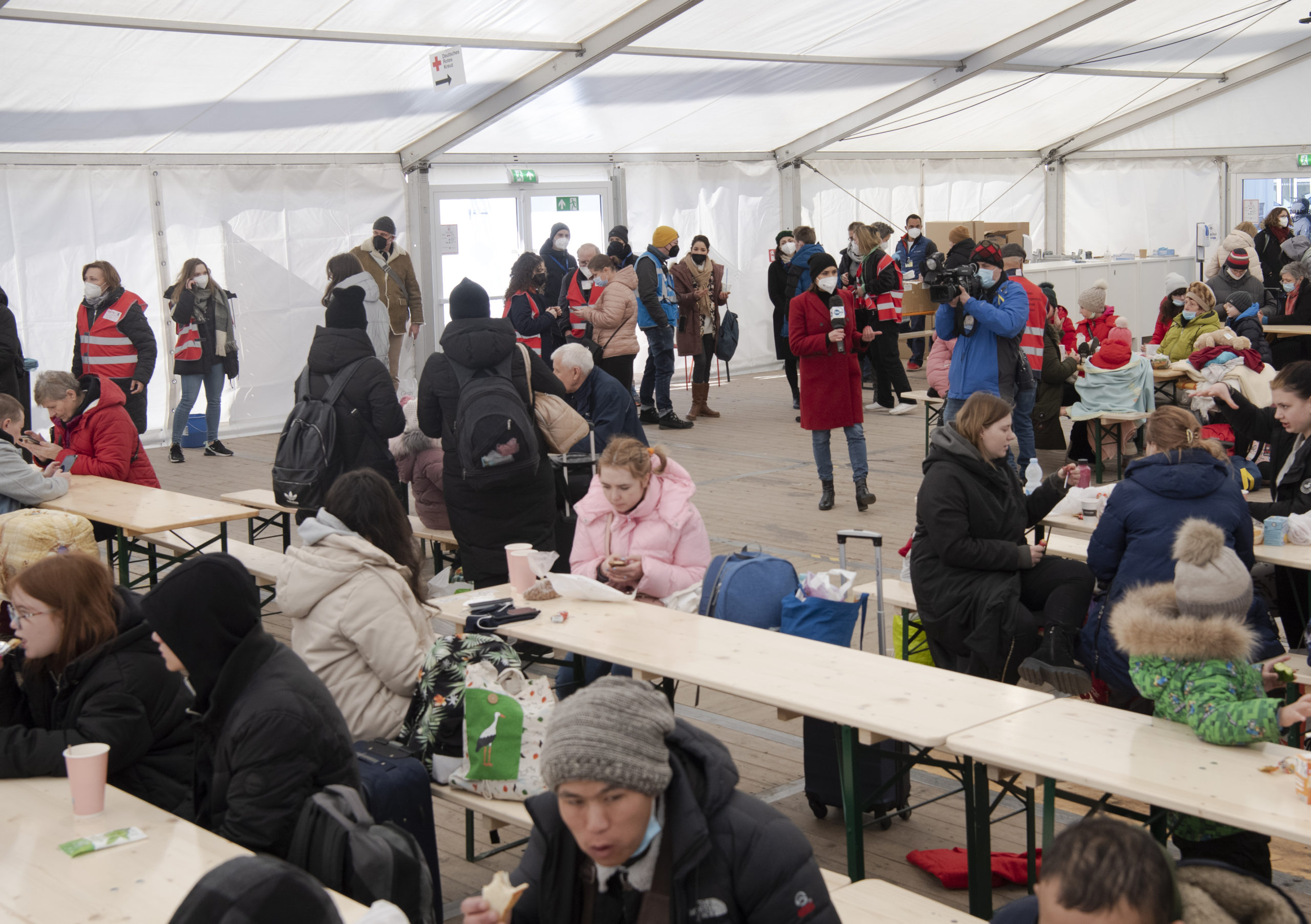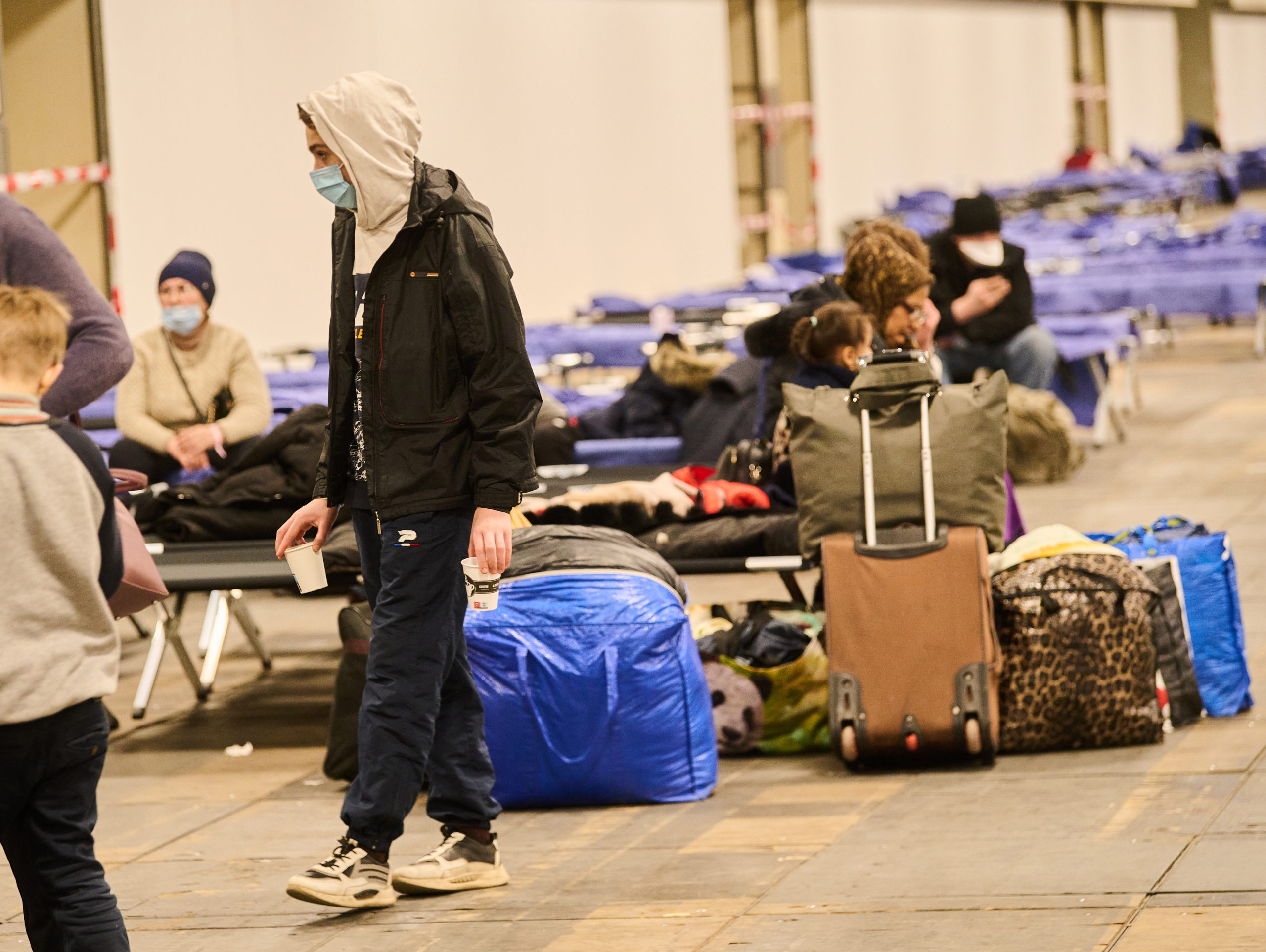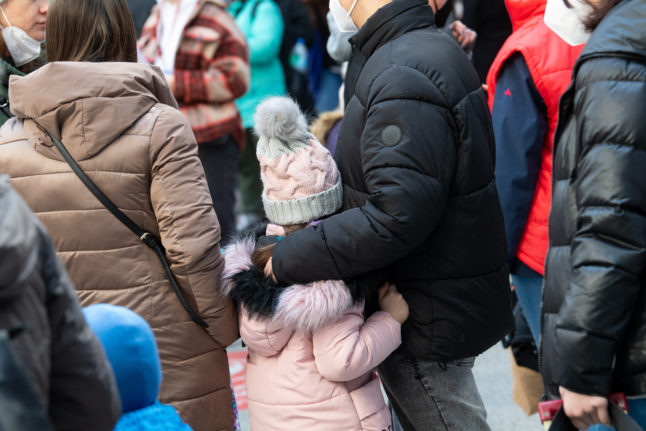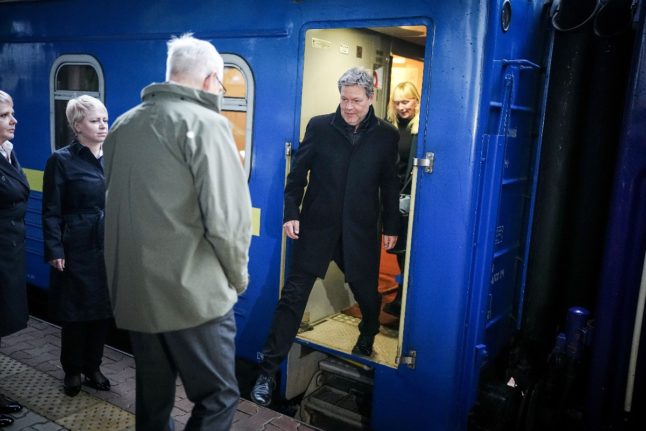British-German pensioner Denise Richardson and her partner, who live in Geilenkirchen near Aachen in western Germany, had already decided that they wanted to do all they could to support refugees after Russia’s invasion of Ukraine.
So when they were asked by a family friend to take in people fleeing the war they immediately said yes.
“We had less than a day to prepare for their arrival,” said Richardson, adding that it was a whirlwind of “making beds, cleaning, baking and cooking”.
The refugees – two sisters and their sons, aged five and 15 – managed to get out of Ukraine to Warsaw, Poland. They then travelled to Berlin before arriving in Düsseldorf last Sunday.

“My daughter and I collected them at Düsseldorf Hauptbahnhof with our yellow smiley balloon for recognition,” said Richardson, who is 67.
“The sisters and their boys were obviously shattered, bewildered and trying to present brave faces. On arrival at our house and after they had been shown around, the tears of relief flowed – from all of us.”
Although there are language barriers, the families talk with each other through translation apps.
“We manage to communicate and have had evenings round our table ‘chatting’,” said Richardson, adding that it’s important to allow their guests to have their own space.
Richardson said everyone comes together to eat a meal in the evening, whether it’s English stew with dumplings, bolognese or German-style food.
“We’ve also had an Omelette with chips which they absolutely loved,” said Richardson. “I’m pretty sure they would try anything, so that is good.”
READ ALSO: How is Germany supporting refugees from Ukraine?
Community help
Richardson said authorities – and locals – have been “brilliant”.
“My daughter contacted the Rathaus (townhouse) and we had a visit from the Refugee Coordinator, school representative and a translator,” she said.
“Forms were completed, ideas exchanged and their benefits, schooling and more permanent accommodation discussed.”
The 15-year-old has already started classes at a local school, with plans to get the five-year-old into the education system when a place becomes available.
“Their mothers will be helped to find work,” said Richardson. “They will receive several benefits and payments that have been set aside by the EU/German authorities to fund this huge wave of refugees. There is very little red tape and the whole system is user friendly.”

They have received pink slips allowing them to visit a doctor without health insurance, and there are also plans to organise Covid-19 vaccinations.
Meanwhile the local Catholic Church has an empty flat that the refugees will move into next week.
Richardson acknowledges how strange it must be for her guests – and for others forced to leave Ukraine.
“One of the hardest things for us to imagine is that you don’t know when you’re going home, if there will be a home and how long your exile will last,” she said.
“Taking you away from everything you own and know and in most cases without a husband or partner at your side. It’s a horrible situation.”
She recommend that other people in Germany open up their homes to refugees if they can. Richardson said it was important to be open-minded to avoid culture clashes.
“You just have to be open, smile a lot and make them feel welcome,” she said.
It has been a hugely rewarding experience for the couple.
“For us two oldies used to our quiet retirement this has given us a chance to help,” she said.
When the sisters and their sons leave, Richardson and her partner won’t be able to take in more people straight away because they have other visitors.
But they will continue to support people in the community and volunteer when they can.
She said: “You know what? It could be us. And how would we feel?”
There are various ways to support people from Ukraine. If you want to and have the space to offer shelter then check with your local authority and any groups in your area organising this. You can also access this site – Elinor – which is helping to connect refugees with private rooms that can be offered for a duration of at least two weeks. You can read more ways to help in our story below:



 Please whitelist us to continue reading.
Please whitelist us to continue reading.
Member comments